If you have ever been to the Thuringian Forest, you certainly know it: the Rennsteig is the oldest long-distance hiking trail in Germany and certainly one of the most beautiful.
Could Thuringia imagine a better ambassador than Erik Lesser? The likeable biathlete from Oberhof in Thuringia was a world champion and medal winner at the Olympic Games in Sochi and Pyoengchang, a top athlete and a top type as well. The man loves his homeland and above all: he knows his way around there. For him as an enthusiastic mountain biker, the Rennsteig a personal favorite in the summer. The nature of Thuringia makes his heart beat faster - and it challenges his body. No wonder: With the so-called Rennsteig ladders, a wonderful network of trails has been created between Hörschel and Blankenstein.
These are 44 tours, some of which start in historic residence towns, lead through traditional villages and idyllic mountain hamlets, guarantee special impressions along the way, and finally take particularly diligent hikers and cyclists to the crest of the Thuringian Forest. To warm up and because he loves speed, Erik Lesser likes to start his Rennsteig tours on the summer toboggan run Speedy in Waffenrod, also an experience for the whole family. But the actual starting point of his Mountaibike tour is the Vacation land Shirea picturesque ensemble of low-energy houses that, hobbit-style, seem to disappear into green meadows and floodplains. But then it's off to the mountain bike. The anticipation is evident in Erik Lesser's face: "Today we're first going up to the Werraquell Hut, and later to the Rennsteigwarte. 44 Rennsteig ladders lead up to the ridge. And there's a mountain bike Rennsteig trail: 450 kilometers long." Wow. But none of that has to happen in one go. Erik Lesser makes a stop after the first leg of his ride at the freshly renovated Werraquell Cottage like to take a break.
Then it goes on and on until he reaches the observation tower of the Rennsteigwarte Masserberg. Another 150 steps up to the viewing platform, and he is offered a panoramic view of the Thuringian Forest unlike any other. A lot of favorite places at once for Erik Lesser - and a place of longing for people who have never been here before.
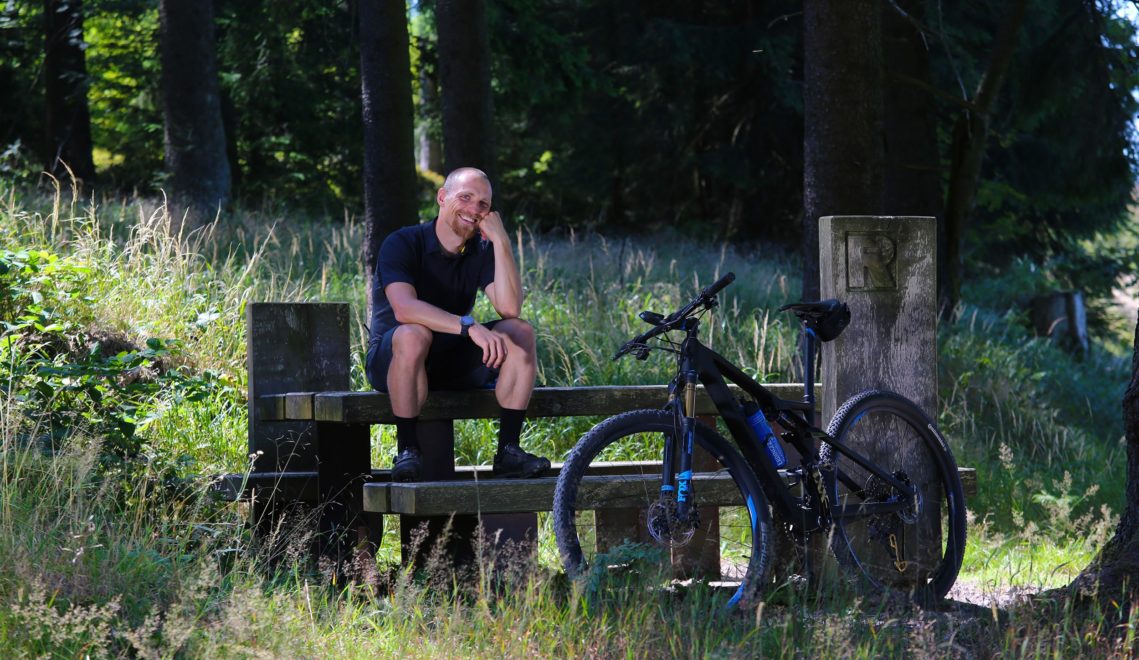
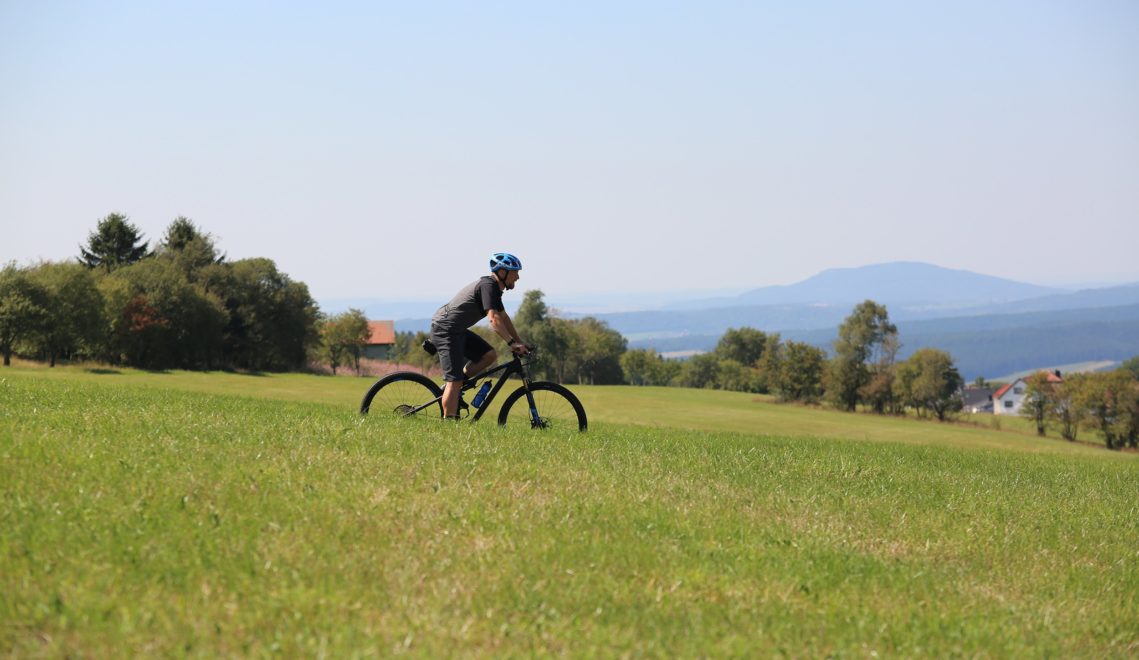
Of course, there are also a lot of less racy, but no less interesting options to reach the Rennsteig - it doesn't necessarily have to be a mountain bike ride with the wind blowing in your face. Sometimes it's enough just to have the breeze of history blowing instead... Like, for example, on the good seven-kilometer hiking tour from Bad Liebenstein to the Schillerbuche on the Rennsteig. Wait a minute: Schiller Beech? Well, this is a substantial trunk of a tree stump, which received its famous name on the occasion of the 100th anniversary of the death of Friedrich Schiller in 1905. Very striking. But first, we recommend a relaxing view of Bad Liebenstein, the oldest spa town in Thuringia, whose carbonated springs were already appreciated by the nobility in the 17th century. Those who want to get ready for the unforgettable hiking tour and get their circulation going: You can take a sip of the healthy spring water in the spa's Wandelhalle before continuing from the Altenstein Cave to the Altenstein Park. The trail ends after a short detour to the picturesque mountain village of Steinbach with its baroque church and Luther monument, where the belligerent reformer Luther was "imprisoned" in 1521 and sent to prison. Wartburg was brought, finally at the already mentioned Schillerbuche. Seven kilometers of pure pleasure, nature experience and history lesson in one.
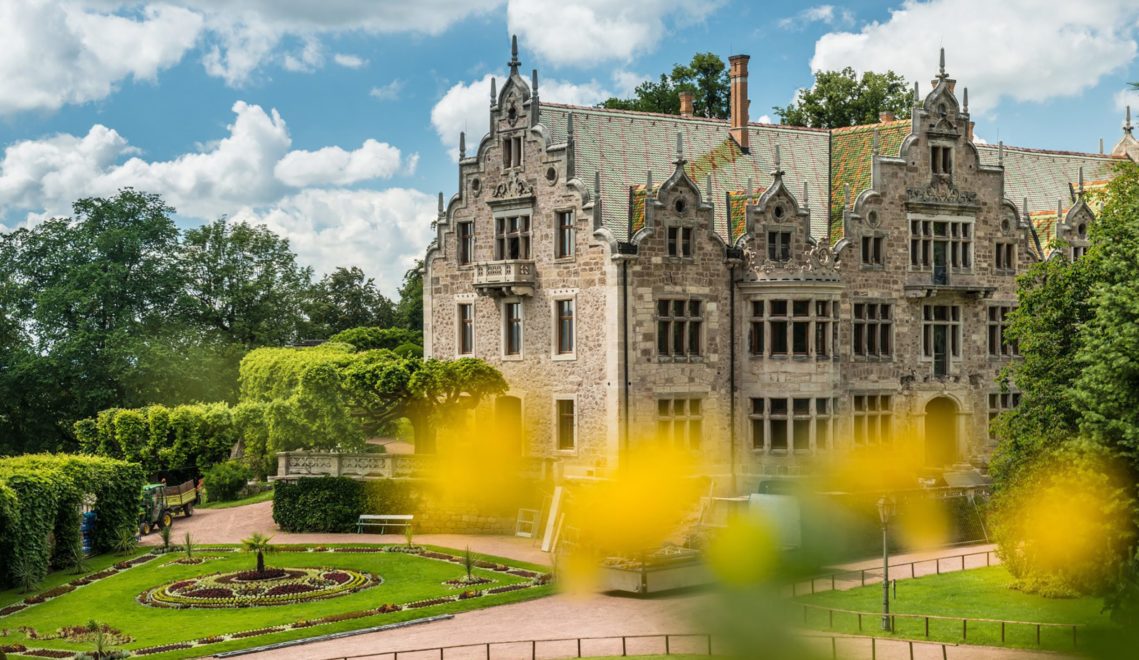
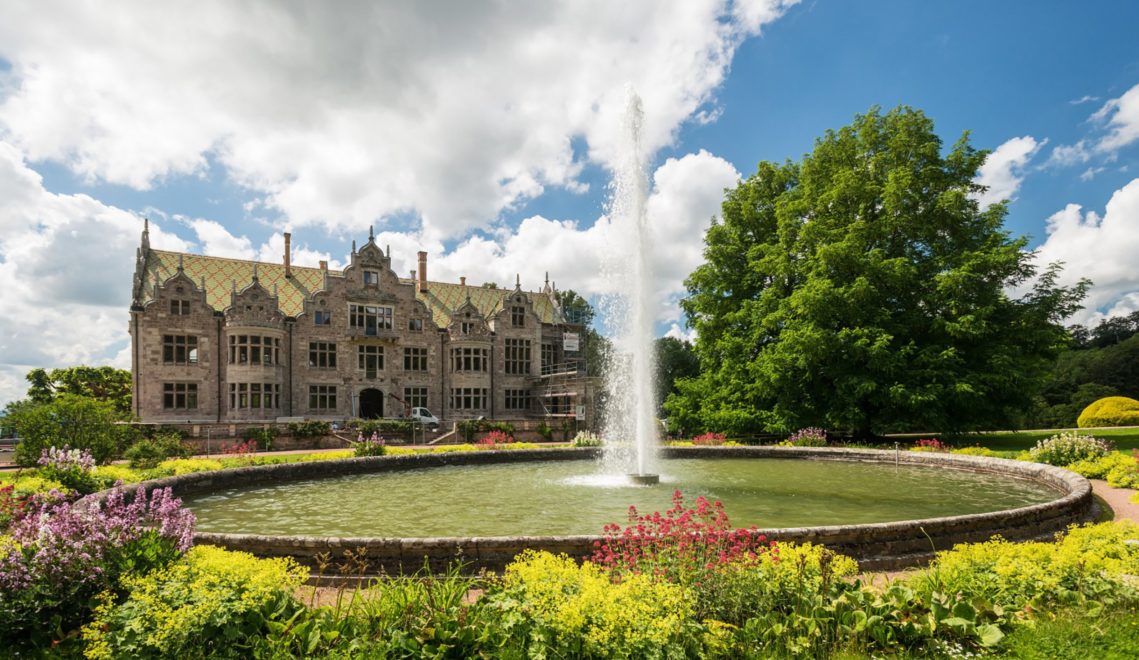
When Schiller is mentioned, Goethe is never far away: The Rennsteig Ladder from the tranquil university town of Ilmenau to Schmücke is around 13.5 kilometers long, deals with the famous polymath in a variety of ways and is then also marked with a small "g" for the sake of simplicity: We are on the Goethe Hiking Trail. First stop: the GoetheStadtMuseum directly on Ilmenau's market square. The second Goethe step you have to master in your head, so to speak, while walking: On the way to the Rennsteig, you pass the Schwalbenstein, where Goethe reportedly wrote the fourth act of Iphigenie auf Tauris. A stop without Goethe, but with fish specialties: the Waldgasthof Schöffenhaus. If you don't find what you're looking for here, simply continue on in the direction of Marienquelle, risk a look at the mountain massif of the Kickelhahn, and finally reach the Waldgasthof Mönchhof, a half-timbered treasure with a guesthouse and a very decent restaurant. From here, it would only be a jump to the large meadow at the Schmücke and to a section of the Rennsteig, but let's be honest: Haven't you earned a nice table at the Mönchhof tavern for now?
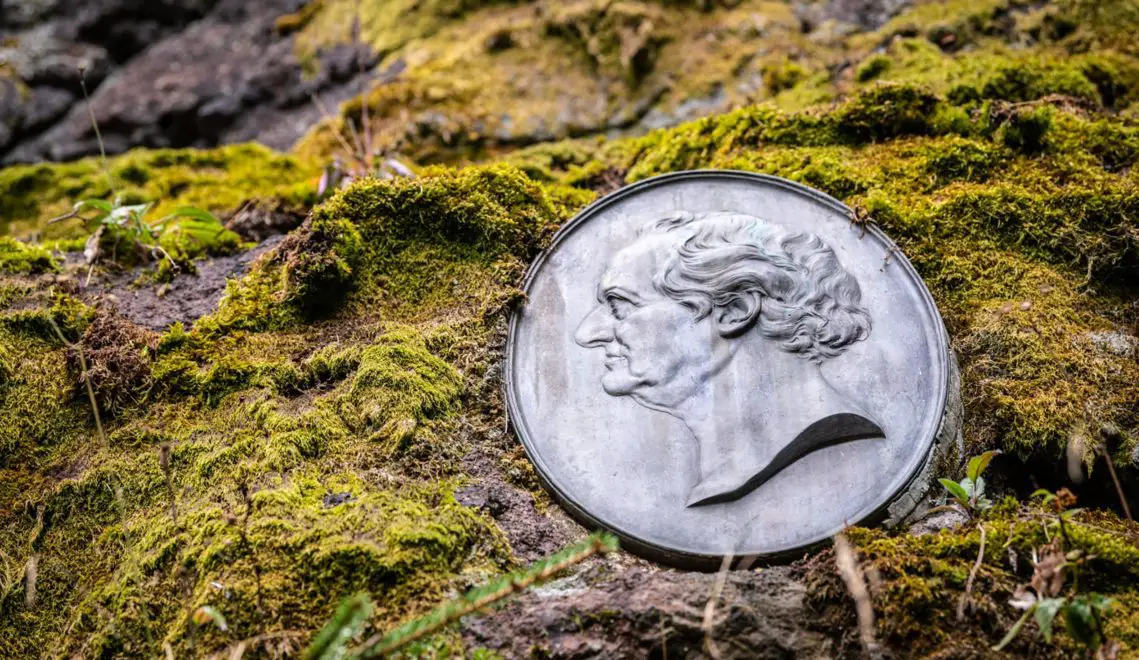
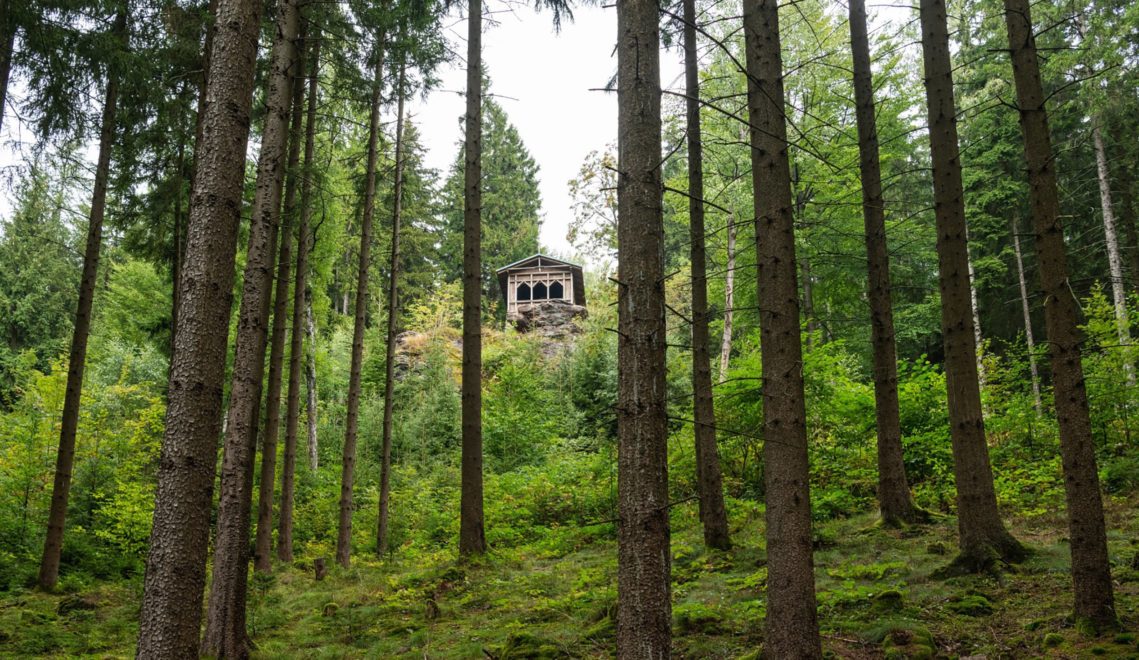
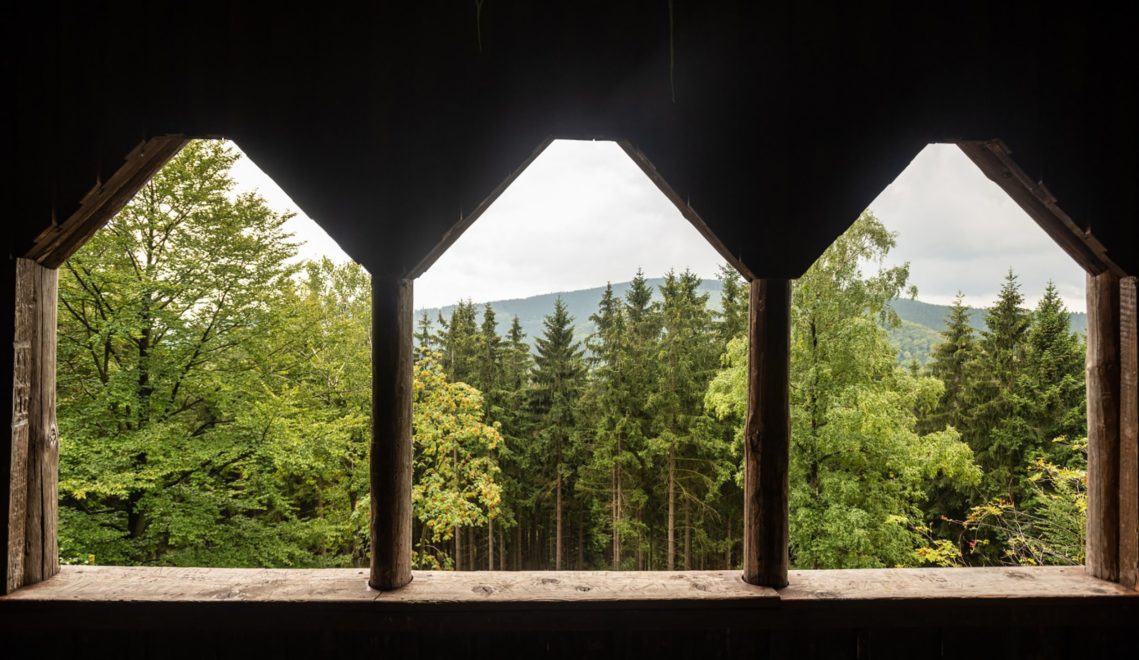
Right at the beginning of the almost seven kilometer long "Rennsteig-Leiter Zella-Mehlis", the wanderlust is put to a serious test. All too tempting is the Hotel Waldmühle with its magnificent garden with outdoor whirlpool and Kneipp facility in the wild and romantic Lubenbach Valley. Past the Gesenkschmiede Technical Museum, which houses Germany's oldest drop hammers as well as many historic tools and machines of the traditional blacksmith's trade, the "Rennsteig Ladder" follows the babbling of the Lubenbach. At the disused Oberhof train station, a steep climb up to the Bärenstein begins directly above the Brandleitetunnel - once the longest railroad tunnel of the Deutsche Reichsbahn in GDR times - which is ideal for a breather thanks to the magnificent view. It's not far to the Rennsteig portal now: after just under 1.5 kilometers, the ridge trail of the Thuringian Forest is reached at the traffic circle. A visit to Oberhof's Rennsteig Garden, which is home to some 4,000 different species of mountain plants from almost all parts of the world on an area of seven hectares around the 868-meter-high Pfanntalskopf, makes for a relaxing end to the hike.
Cover photo: Break location for a world champion and with beds for hikers and bikers: the Werraquell Hütte © Paul Hentschel